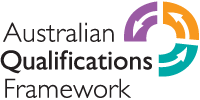CLET RPL is Helping Military and Police Transition with Conf...
This unit specifies the skills and knowledge required to manage work health and safety in the security work environment. It includes facilitating WHS awareness, legislative compliance and consultation, monitoring compliance with risk control procedures, and planning and implementing WHS training for individuals and teams.
This unit is suitable for those using specialised knowledge to complete routine and non-routine tasks and using their own judgement to deal with predictable and sometimes unpredictable problems.
Legislative, regulatory or certification requirements apply in some states and territories to the provision of advice on security solutions, strategies, protocols and procedures. For further information, check with the relevant regulatory authority.





